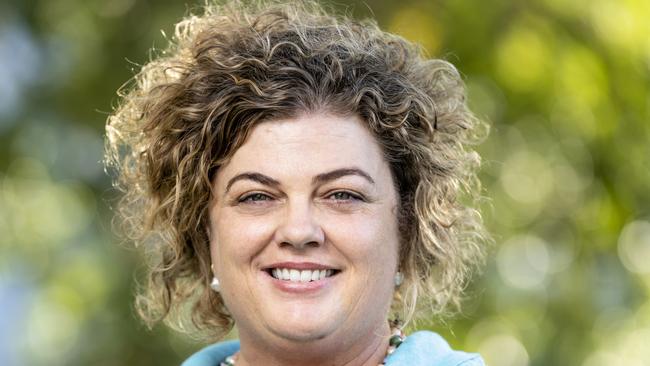Child Protection Week NT: How govt agencies support safer homes
The Territory is bucking the national trend in returning children to their families after a notification, but more needs to be done. Read why Child Protection Week is so important for progress.
Opinion
Don't miss out on the headlines from Opinion. Followed categories will be added to My News.
In the Northern Territory we know children do better, are safer and are happier when they’re with family.
Family means different things to different people – whether it’s mum and dad, extended family and kin, friends or community – families want what’s best for their children.
To give them a sense of safety and belonging and keep them happy and healthy.
Not all families can do this alone and that’s where our support can assist.
We strive to with families, community and the sector to ensure we respond to issues of child safety and wellbeing together – because this is everyone’s business and everyone’s responsibility.
Today marks the start of National Child Protection Week with the theme this year of ‘Where we start matters’ – an approach we’re embracing through the national framework for protecting children ‘Safe and Supported’.

In the NT more children have returned to their families over the past five years than have come into our care.
Last year, 211 children left our care by either returning to family, finding permanent homes with carers or as independent adults.
Today, there are 892 children in out-of-home care, compared with 1067 in 2018.
We are bucking the national trend with the country experiencing a steady overall increase over the same period.
While 175 fewer children in care may not sound transformative, it is to those children and their families.
We are moving from a system that was quick to remove children, to one that supports families to make home safe and to create more opportunities for families to thrive.
But let’s be clear. We will never leave a child in a dangerous or unsafe environment.
We will unapologetically intervene if the safety of a child is at significant risk.
If we must bring a child into our care, our focus is understanding why home is not a safe place, what needs to change to make it safe and what we can do to help.
The families our child protection practitioners work with may be facing issues such as homelessness, domestic violence, exploitation, addiction, or poverty.
These are issues that can’t be solved in a week or two.

We work alongside families, for months and sometimes a year or more, providing support to ensure positive changes endure and the likelihood of further concerns arising is dramatically reduced.
We’re one of the only jurisdictions to provide this level of intense ongoing case management, and this has meant that in around 90 per cent of cases, no further matters are substantiated within 12 months.
We know there is still a lot of work to do.
We can seek and learn from the expertise of our stakeholders, particularly our Aboriginal community-controlled service providers to ensure we keep children with their families, consistent with the national framework for protecting children ‘Safe and Supported’, while having confidence in their safety and that of the community.
Our children are our future and the best thing we can do for children is to support their families for them to be strong, confident and happy.
One of the best things about living in the Territory is our capacity to care for one another. This Child Protection Week we can all make a difference – whether it’s getting to know our neighbours or reaching out to family and friends and checking in. These seemingly small things can be the thing that makes a difference to that parent feeling overwhelmed or a child feeling alone or unhappy.
We will continue to do everything we can to keep them safe and with their family.
– Emma White is the Department of Territory Families, Housing and Communities acting chief executive


